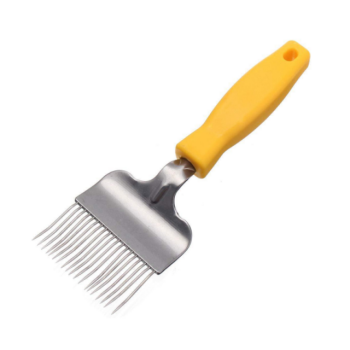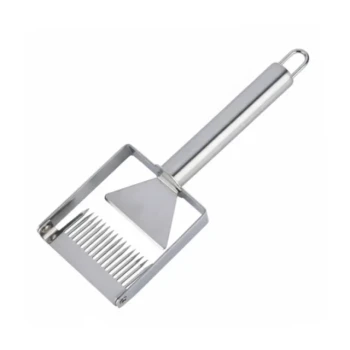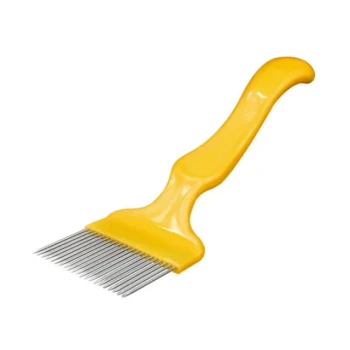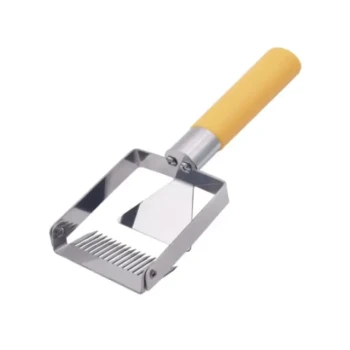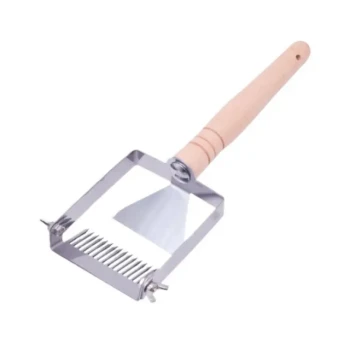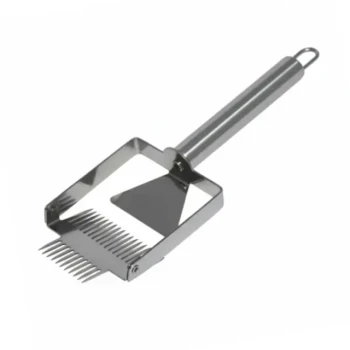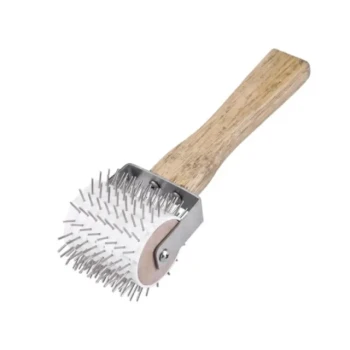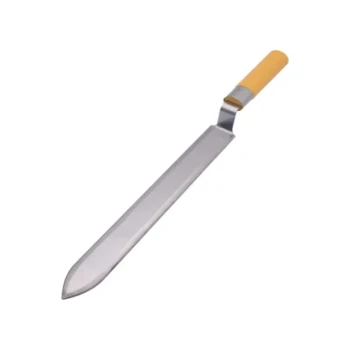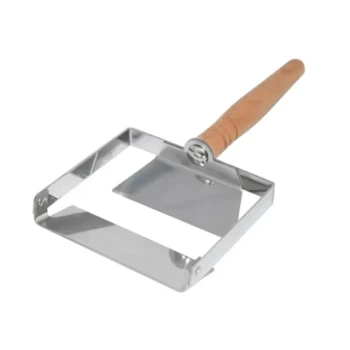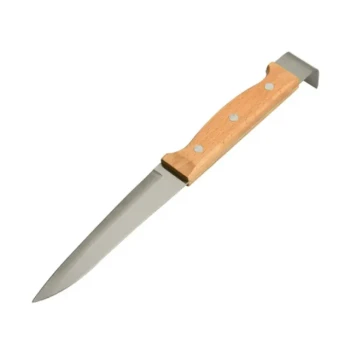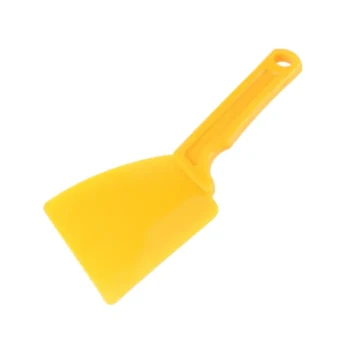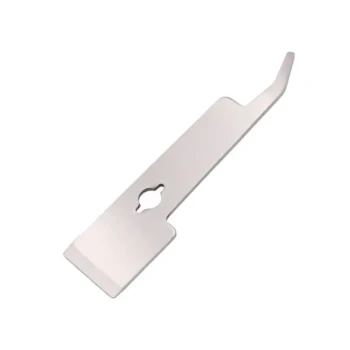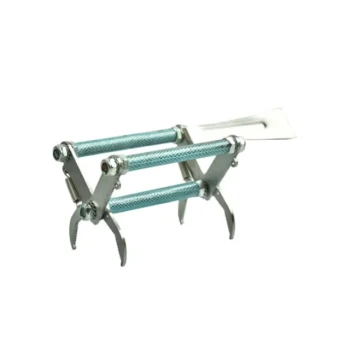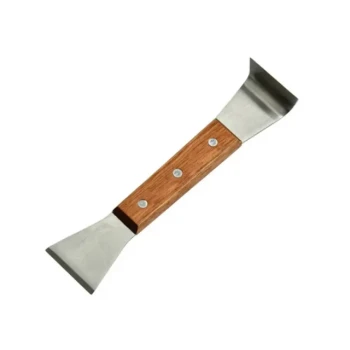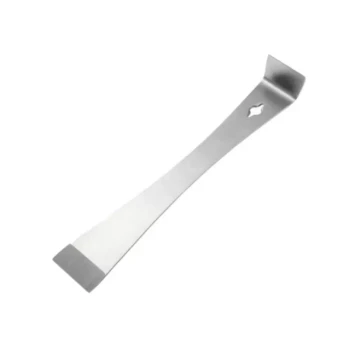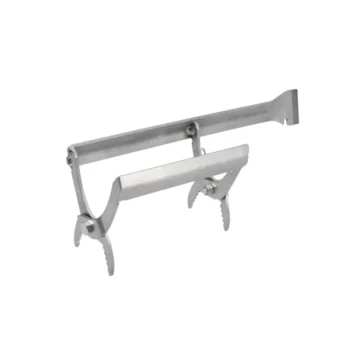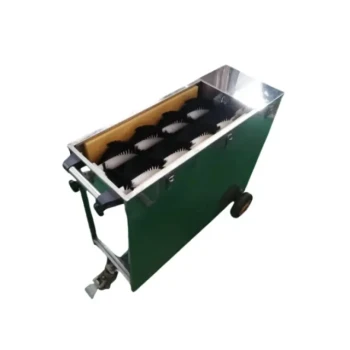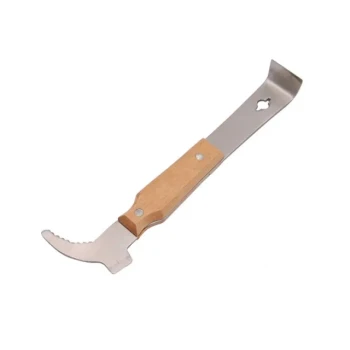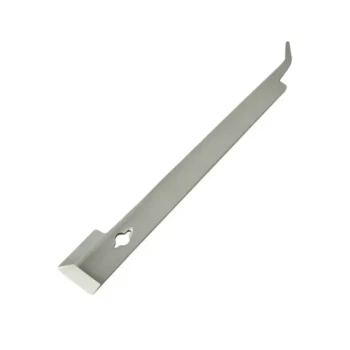There is no single "best" method for uncapping honey, as the ideal tool depends entirely on your goals as a beekeeper. For most small-scale operations, the primary choice is between an uncapping fork (or scratcher), which prioritizes comb preservation, and an electric hot knife, which prioritizes speed and efficiency. Both are effective, but they serve slightly different philosophies of honey harvesting.
The core decision in uncapping honey is a trade-off. You must balance the speed of removal against the amount of damage done to the delicate wax comb, which impacts how much energy your bees must expend to repair and reuse it.
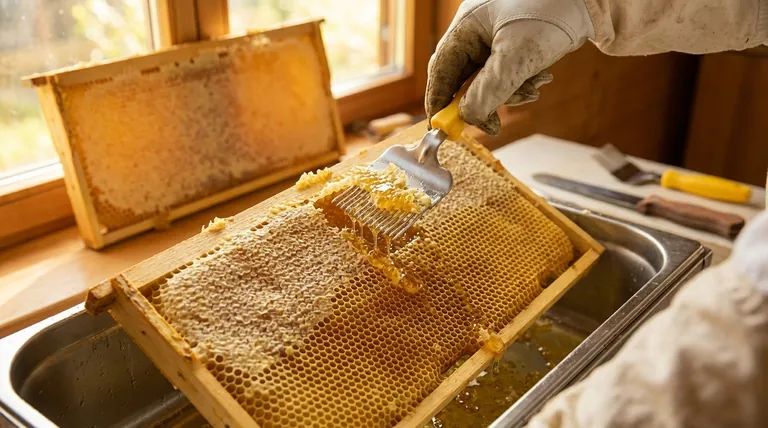
Why Uncapping is a Critical Step
Before honey can be extracted, you must first remove the protective wax layer that bees build to seal each cell. This process is known as uncapping.
The Purpose of Wax Cappings
Bees cap honey cells with fresh beeswax once the honey has been dehydrated to the correct moisture content (typically below 18.6%). This capping preserves the honey indefinitely, protecting it from moisture and contaminants.
Enabling Mechanical Extraction
To harvest the honey, these wax caps must be sliced or scraped off. Once uncapped, the frames can be placed in a centrifugal extractor, which spins the honey out of the cells while leaving the comb structure largely intact.
Conserving Bee Energy
Performing this step carefully is crucial. When the honeycomb is preserved, bees can immediately begin cleaning, repairing, and refilling the cells. This conserves an immense amount of energy, as producing wax is one of the most resource-intensive tasks for a honeybee.
A Breakdown of the Primary Uncapping Tools
Each tool offers a different balance of speed, cost, and gentleness on the comb.
The Uncapping Fork (Scratcher)
An uncapping fork is a simple tool with sharp tines used to gently lift or scratch the wax cappings off the cells. It is often used to catch low spots missed by a knife.
This method is highly regarded for its minimal impact on the comb. It only removes the cap, leaving the underlying cell structure almost completely intact.
The Electric Hot Knife
This tool has an integrated heating element, often with a thermostat, that allows the blade to melt cleanly through the wax cappings.
A hot knife is extremely fast and requires less physical force than other methods, making it ideal for processing a large number of frames efficiently.
The Cold Knife
A cold uncapping knife is a sharp, often serrated, blade without a heating element. To be effective, it must be kept sharp and frequently dipped into a pot of very hot water.
This is the most traditional and least expensive option, but it requires more skill and effort to achieve a clean cut without tearing the comb.
Understanding the Trade-offs
Choosing a tool is not just about personal preference; it's about understanding the consequences of each method.
Speed vs. Comb Preservation
The electric hot knife is the fastest method, but it slices off the top layer of the wax cells along with the cappings. This means bees must expend more energy rebuilding the cells.
The uncapping fork is slower but is far gentler. By only lifting the caps, it preserves the comb structure, allowing bees to make minor repairs and reuse it almost immediately.
Cost vs. Convenience
A cold knife or a fork is very inexpensive and requires no electricity, making them perfect for beekeepers on a budget or those harvesting in a location without power.
An electric knife represents a higher initial investment but offers significant convenience and speed, reducing the physical labor of a large harvest.
Workflow and Yield
Regardless of the tool, an efficient workflow is key. Having an uncapping tank to hold the frame and collect the wax cappings (which are rich with honey) ensures you maximize your yield and keep the workspace clean. Always check for missed spots on the frame before placing it in the extractor.
Making the Right Choice for Your Operation
Select your tool based on the size of your apiary and your primary goal.
- If your primary focus is preserving your comb and simplicity: The uncapping fork is your best choice, as it causes the least damage and is simple to master.
- If your primary focus is speed and efficiency for a larger harvest: The electric hot knife will save you significant time and effort when processing many frames.
- If your primary focus is the lowest possible budget: A sharp, serrated cold knife is the most economical option, provided you are prepared for the extra manual effort.
Choosing the right uncapping tool is the first step toward a smooth and rewarding honey harvest.
Summary Table:
| Tool | Best For | Key Advantage | Key Consideration |
|---|---|---|---|
| Uncapping Fork | Small-scale beekeepers, comb preservation | Minimal damage to comb for easy bee reuse | Slower process, more manual effort |
| Electric Hot Knife | Larger harvests, efficiency | Fast, clean cuts with minimal physical effort | Higher initial cost, removes more wax |
| Cold Knife | Budget-conscious beekeepers | Low cost, traditional method | Requires skill and frequent heating to prevent tearing |
Ready to streamline your honey harvest? The right equipment is key to a successful season. At HONESTBEE, we supply durable, commercial-grade uncapping tools and full honey harvesting systems to apiaries and distributors. Our wholesale-focused operations ensure you get the reliable equipment you need to maximize efficiency and protect your valuable comb.
Contact our team today to discuss your operation's needs and explore our product catalog.
Visual Guide
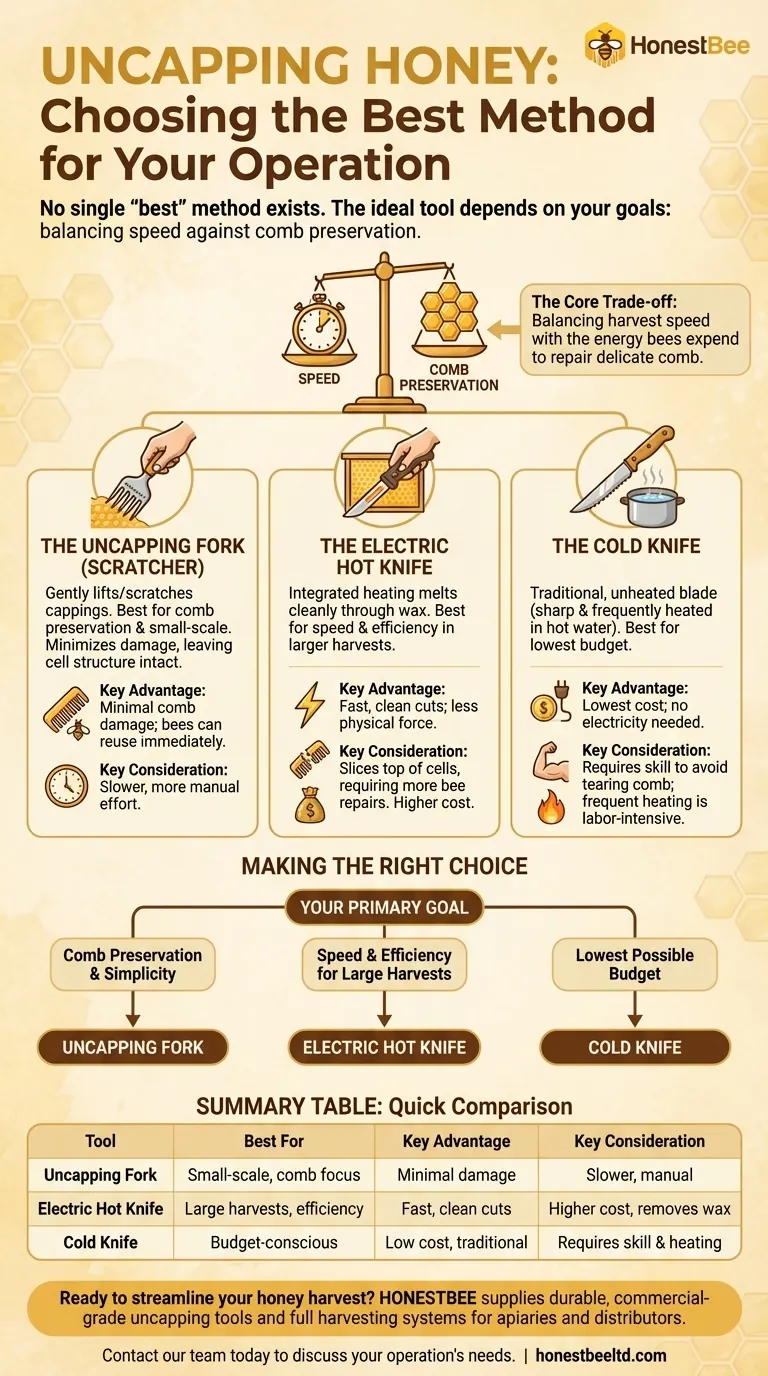
Related Products
- Professional Bent Tine Honey Uncapping Fork with Ergonomic Grip
- All-Stainless Steel Pivoting Honey Uncapping Fork for Beekeeping
- Professional Honey Uncapping Fork Tool with Customizable Tine Options
- Stainless Steel Pivoting Honey Uncapping Fork with Plastic Handle
- Adjustable Stainless Steel Honey Uncapping Fork with Scraper for Beekeeping
People Also Ask
- What are the common methods used by small-scale beekeepers to uncap honey frames?
- What are the advantages of an uncapping fork? Achieve Precision Honey Harvesting for Your Apiary
- What are the characteristics of the combined uncapping fork and scraper tool? Maximize Hive Maintenance Efficiency
- What is the function of uncapping knives or uncapping forks? Expert Tools for Honey Harvesting Productivity
- What is the use of an uncapping fork? A Precision Tool for Hive Management and Honey Harvesting
